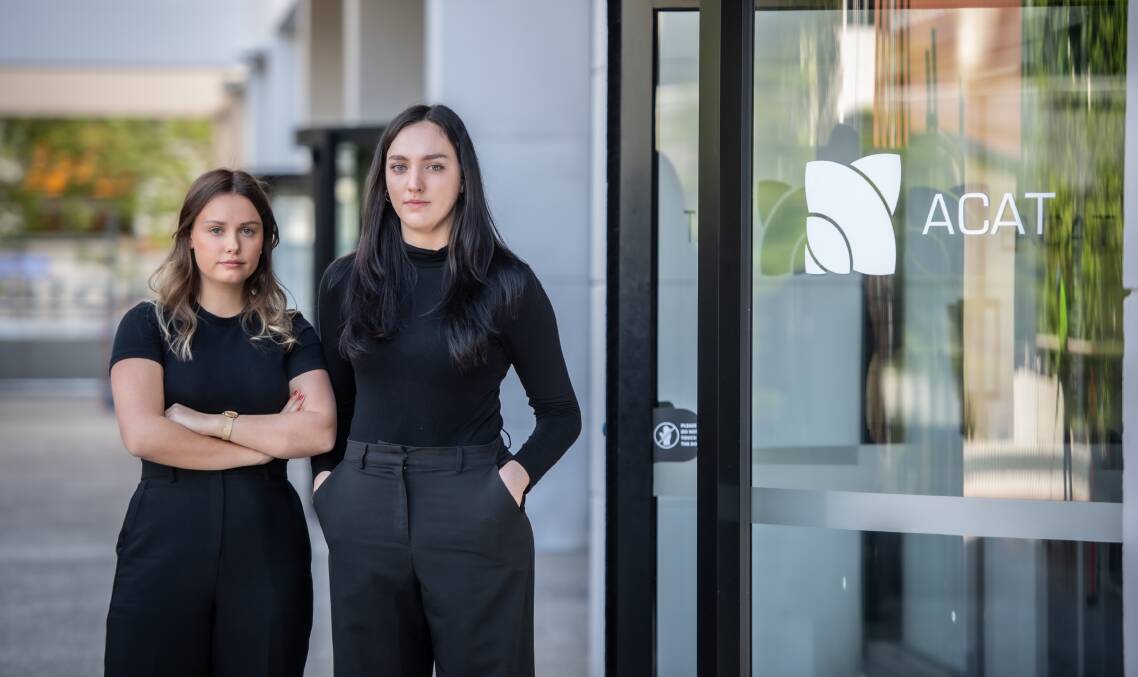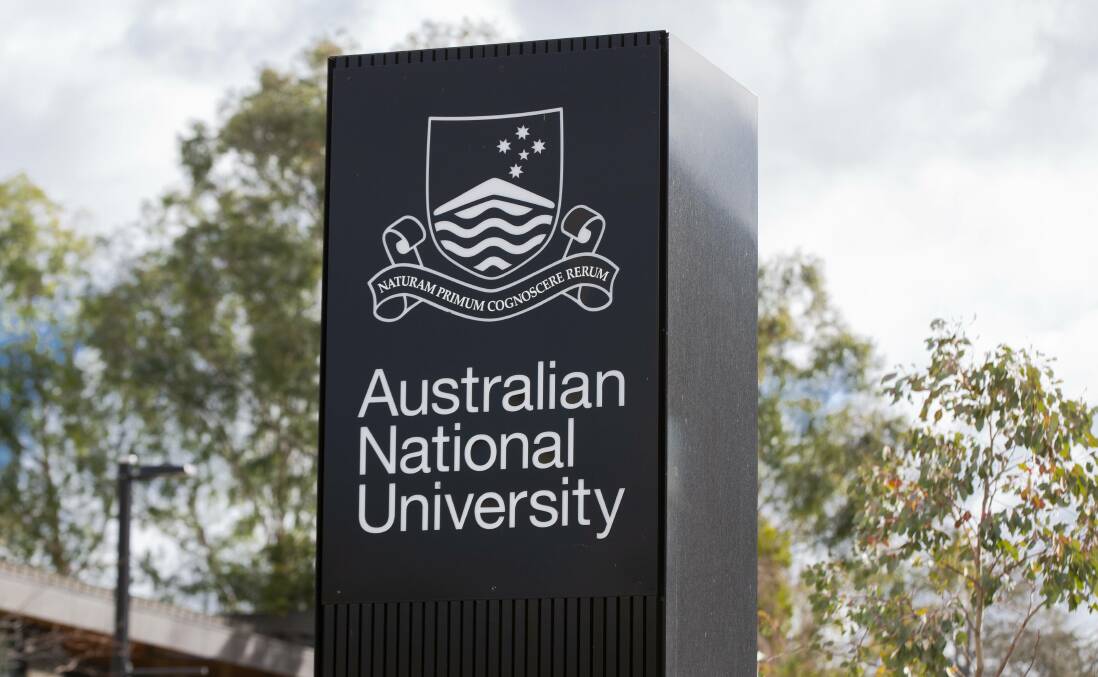
Two on-campus students' legal actions against the ANU for enforcing alleged "impossible" living agreements while they were in a Sydney COVID lockdown could trigger other students across the nation to come forward and lead to class actions.
Kate Aston's and Sigourney Vallis' statements of claims filed in the ACT Civil and Administrative Tribunal are seeking orders that their occupancy agreements with the ANU for on-campus accommodation at Burton and Garran Hall in February-December of 2021 were rendered impossible because of the "unforeseen, unforeseeable, and unprecedented" effects of the pandemic.
During the mid-year break, both students, who each paid $245 per week in rent, travelled to Sydney to visit their families.
The Delta variant spread across NSW at the time, causing a huge increase in cases and triggering a lockdown in Greater Sydney, as well as the ACT-NSW border closing from June to November.
The plaintiffs claim that the ANU did not or could not provide an on-campus quarantine facility for the return of students in NSW or otherwise facilitate the return of those students.
ACT Health at the time did not provide travel exemptions for students in NSW and travel from Greater Sydney to Canberra was declared illegal unless permitted by an exemption that the plaintiffs were not eligible to obtain.
Ms Vallis became aware that the hall provided rental refunds to students impacted by the Sydney lockdown in 2020 while Ms Aston learnt that other ANU residential colleges had provided rent freezes or reductions.
Both plaintiffs had contacted the hall to obtain a rent freeze, obtain a refund, or end their occupancy agreements.
However, the hall allegedly advised students that no such relief would be granted.
"All students were advised before they signed their occupancy agreement this year that if they were unable to use their room because of a public health direction, they would continue to be liable for the cost of that room," an email allegedly stated.
The two students said they were not aware of any such advice having been provided and Ms Vallis alleges that this claim was inconsistent with the entire agreement clause of the occupancy agreement.
Ms Vallis, who in the end received a $550 bursary from the hall, was allegedly told that being prevented from returning to campus due to a public health order was not a basis for early termination of the agreement.
She ultimately paid rent until the agreement finished in December.
Ms Aston in September cancelled her direct debit payments to the hall, but two months later she received a backdated charge for $2450.
The plaintiffs claimed that the COVID impacts rendered the provision of accommodation under the agreements impossible.
Alternatively, the events made the agreements possible only if the plaintiffs illegally travelled to the ACT.
The plaintiffs argue there were no faults on their parts.
Kathryn Lee, ANU Student Association solicitor who has carriage of the cases, told The Canberra Times that about 650 students from the institution had been in similar positions as the plaintiffs.
"These two students are the tip of the iceberg. The precedential value of these cases is high as COVID is a once-in-a-lifetime event," Ms Lee said.
"They would be test cases for other universities because the [COVID] situation didn't apply to only the ANU. We've had some inquiries from others about these cases."
Ms Lee said the 650 students related to only those travelling to Sydney and the student association was yet to investigate how many were impacted by the Victorian lockdown.
She said pending the outcome of the tribunal hearing, it could lead to class actions in the future.
"It's not easy as second-year students to go against a university and be represented by a student association lawyer," Ms Lee said.
"It's not just a case to these students, it's about their livelihoods. Things are brewing in the residential halls and they're [students] not keeping quiet about it."

Other orders the plaintiffs are seeking include ANU paying them $11,500 in total.
The plaintiffs' cases came before the tribunal on Wednesday for a concurrent hearing when Steven Whybrow SC, the lawyer for both plaintiffs, in his opening statement said "in the scheme of civil litigations, these are relatively modest claims for now second-year university students".
"But they are matters of significance to the applicants and the respondent," he said.
Ms Vallis, who gave evidence during most of the hearing on day one, reiterated most of her statement of claim during her evidence in chief, including that she was rejected twice for an exemption to re-enter the ACT.
During cross examination by Prue Bindon, the barrister for the ANU, Ms Vallis was questioned about her awareness of the risks of leaving the ACT with COVID having already been around for most of 2020 and knowledge that other areas of Sydney having being declared hotspots.
The arts student, 21, accepted there was a risk that the Sydney area she stayed in could become an area of concern for the ACT government.
The tribunal heard that when she agreed to the occupancy agreement, she understood that regardless of whether she arrived after the start or departed before the end date of the contract, she was obliged to continue paying until a replacement occupant was found.
"Yes, I understand I was to pay until the end of the contract," Ms Vallis said.
Ms Bindon did not make an opening address and declined to provide the ANU's responses to the plaintiffs' claims to The Canberra Times.
At the time of publication, the tribunal had not responded to an application to inspect the respondent's documents.
The hearing, before presidential member Geoff McCarthy and senior member Kristy Katavic, is expected to take until Friday.
!["[T]he First and Fifth Amendments Require ICE to Provide Information About the Whereabouts of a Detained Person"](https://images.inkl.com/s3/publisher/cover/212/reason-cover.png?w=600)






